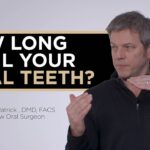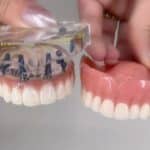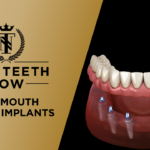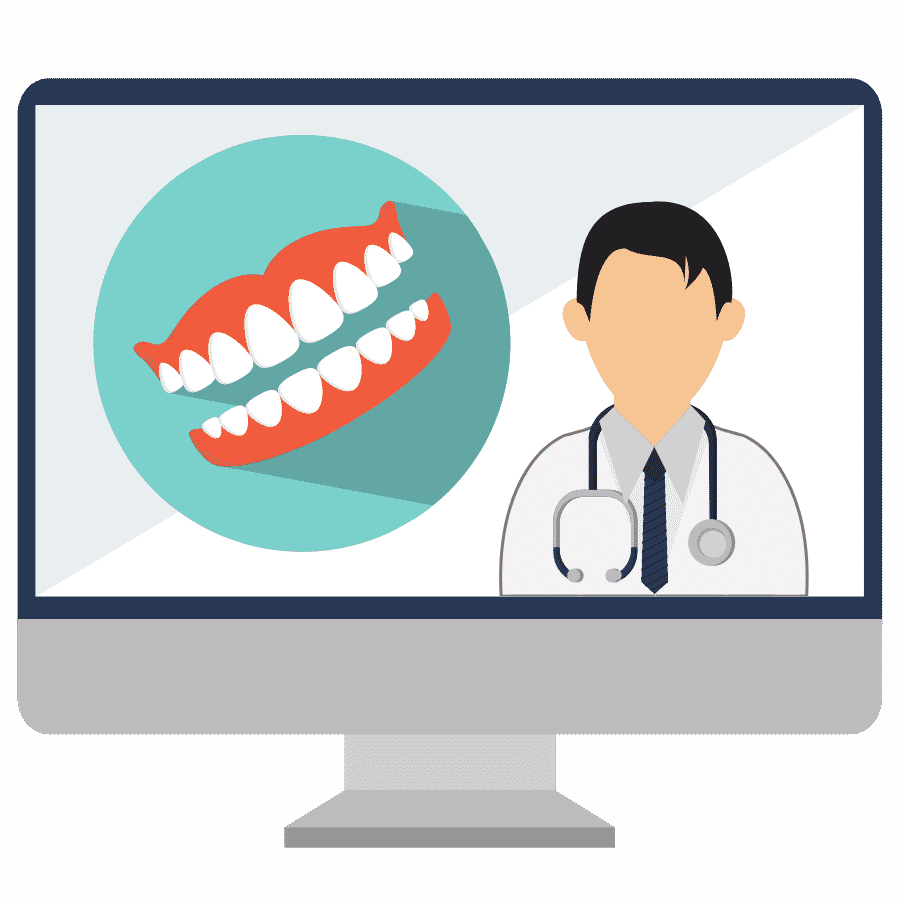If one of your parents were silently suffering from excruciating mouth pain caused by dental issues, would they tell you?
We want to assume Mom and Dad feel comfortable enough to share any serious issues. Unfortunately, it’s common for family members to keep quiet about personal issues they’re having, especially as they get older.
Do any of the following scenarios sound familiar to you?
- Mom and Dad are from a generation that was taught not to complain and to figure things out for themselves.
- You recently lost a parent, maybe your Father, who was more vocal when it came time to advocate for their needs. Now, Mom is on her own and she isn’t accustomed to speaking up for herself when she needs your help.
- Even though you’re doing well and you’re in a financial spot where you can help, money has always been a sensitive topic between the three of you. Your parents don’t like to talk about finances, and they don’t feel comfortable asking for financial assistance.
- In general, Mom and Dad don’t want to be an imposition. They feel awkward asking for help from their adult child.
This is a sensitive situation to navigate. However, ignoring the persistent discomfort of dental pain can have a serious impact on both length of life and quality of life. Recent studies now suggest a connection between tooth loss and dementia. Left unaddressed, serious dental issues will lead to more pain and higher expenses down the road.
Ask Questions with Respect and Dignity
Take the first steps in finding out if your parents are experiencing serious discomfort. Don’t just ask general questions about how they’re feeling. Adaptive behaviors are a very common sign of a serious issue. You will need to be specific about real behavioral changes you’ve witnessed first-hand.

Here are some ideas about how you might approach the conversation.
- I noticed you didn’t finish dinner last night. Is your mouth feeling okay?
- You’ve been taking your dentures out a lot more often. How are they fitting?
- We don’t talk as often as we used to. Is a dental issue making it harder to talk?
- It seems like you’ve been avoiding some of your favorite foods. Are you having trouble chewing?
Demonstrating that you’re paying attention can show your parents how much you care. Asking questions that are very specific to they’re situation can make it easier for them to open up to you. Hopefully, they’ll begin sharing details about the challenges they’re facing down.
Long-Term Risks from Ignoring Dental Problems
Periodontal disease is a major risk factor for people with pre-existing dental problems. Risk of infection increases among older adults. Left untreated an infection can spread, causing extreme fatigue, tooth loss, and even increasing risk of heart and lung disease.
Denture wearers are vulnerable to some of these same issues. The mouth changes as time passes. Among other things, wearing dentures can speed up these changes, causing wear and tear inside the mouth and accelerating bone loss.
Dentures that once fit comfortably, create the same conditions in the mouth that speed up the need for adjustments and fittings as the denture wears away at the ridge of the jaw they’re set against. Any discomfort caused by the constant biting down pressure against that bone ridge will only feel worse and worse overtime. The result can be excruciating pain. As fitted dentures become less suitable, they can also create excruciating lesions and sores in the mouth called stomatitis, an extreme irritation of the surrounding gums.
Dental problems like those discussed here do not only affect a person’s ability to eat, but it can also impact their ability to speak and disrupt normal sleeping habits. Open sores in the mouth are an invitation for the spread of oral disease.
For people who have bone loss, there is a better option. And it doesn’t require bone grafting.
Dental Implants and Bone Loss
Dental implants aid recovery following the loss of teeth. Not only do they look and feel as close to real teeth as possible, they also prevent pain and reduce further bone loss in the jaw.
How does this work? In some ways, the bone is like muscle in that it requires regular exercise in order to remain healthy and strong. When you chew, teeth regularly stimulate the surrounding jawbone. A natural tooth provides this stimulation by exerting pressure within the bone through the roots whenever the patient bites down. The titanium anchors of New Teeth Now dental implants are designed to match this experience precisely, stimulating the jaw when you eat in the same way a natural tooth does.
Are Dental Implants Safe for Seniors?
The high-quality dental implants offered at New Teeth Now are appropriate for people of all ages. Compared to less permanent solutions like dentures, our implant procedures are an investment in comfort, requiring less maintenance, more durability, improved ease of cleaning and significantly cutting down on the need for routine checkups or adjustments. Not only do they prevent further bone loss for patients, the integration of an implant with the bone, or osseointegration, stimulates bone development, leading to a healthier and stronger jaw.
New Teeth Now Full-Mouth Restorations
At New Teeth Now, we see patients of all ages and walks of life who come from all parts of the country. We understand how pain and discomfort caused by dental issues can create needless hardships. As so many of our patients travel so far to see us, we too make a point to go the extra mile to meet the needs of those who have put their own self-care on hold for their loved ones and families.

Our surgeons have incredible success helping those who have experienced bone loss from missing teeth and the wear-and-tear of dentures. Restorative dental procedures at New Teeth Now have changed lives even for those who have been told in the past that they were not candidates for dental implants.
If you or someone you care for believes they are not eligible for dental implants due to bone loss, please reach out to us for a second opinion. We want to help you achieve the comfortable, natural feeling smile you deserve.









